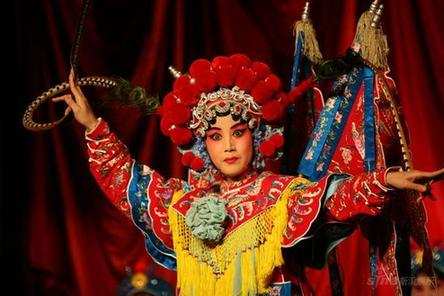聯合國教科文組織保護非物質文化遺產政府間委員會11月15日在肯尼亞首都內羅畢舉行會議,宣布新入選的非物質文化遺產代表作。此次共有29個國家的47項遺產申報列入"人類非物質文化遺產代表作名錄",其中包括中國的京劇和中醫針灸,比利時的阿爾斯特狂歡節、西班牙的弗拉門戈舞蹈、哥倫比亞的瓦尤人社區規范體系、伊朗的卡山地毯編織傳統技藝以及由歐洲、亞洲和非洲11個國家共同提交的獵鷹訓練術等。

 |
|
?Peking Opera, Spanish Flamenco and the art of French gastronomy won places Tuesday on UNESCO's list of intangible world heritages to preserve. |
Peking Opera, Spanish Flamenco and the art of French gastronomy won places Tuesday on UNESCO's list of intangible world heritages to preserve.
The UN culture and education agency deemed the traditions and 43 others from a total of 11 countries worthy of recognition on the list at a meeting in Nairobi.
Among the more obscure traditions, Luxembourg won recognition for a centuries-old annual hopping procession in the eastern border village of Echternach.
The blade-twirling of a scissor-dancing ritual in Peru's Chanka region, which has roots going back to the 16th century, was also nominated as was Turkey's 648-year-old Kirkpinar festival of dozens of men wrestling in cooking oil.
Nominations not only included festivals and rituals but also arts such as the Chinese traditional medicine of acupuncture.
Traditional Mexican cuisine and the loosely defined Mediterranean diet, consisting of growing and consuming olive oil, cereals, fresh or dried fruit and vegetables, were also honored with recognition on the list.
Better known for its work protecting world monuments and natural wonders, the United Nations Educational, Scientific and Cultural Organization started the list in 2003 to preserve art forms and other traditions in the face of globalization.
The aim is to recognize elements of living heritage, such as language, in a bid to protect cultural diversity and foster a sense of community.
To be recognized on the list, traditions must be deemed to spread knowledge of intangible cultural heritage and protective measures must be taken to promote them.
相關閱讀
(Agencies)

(中國日報網英語點津 Helen 編輯)